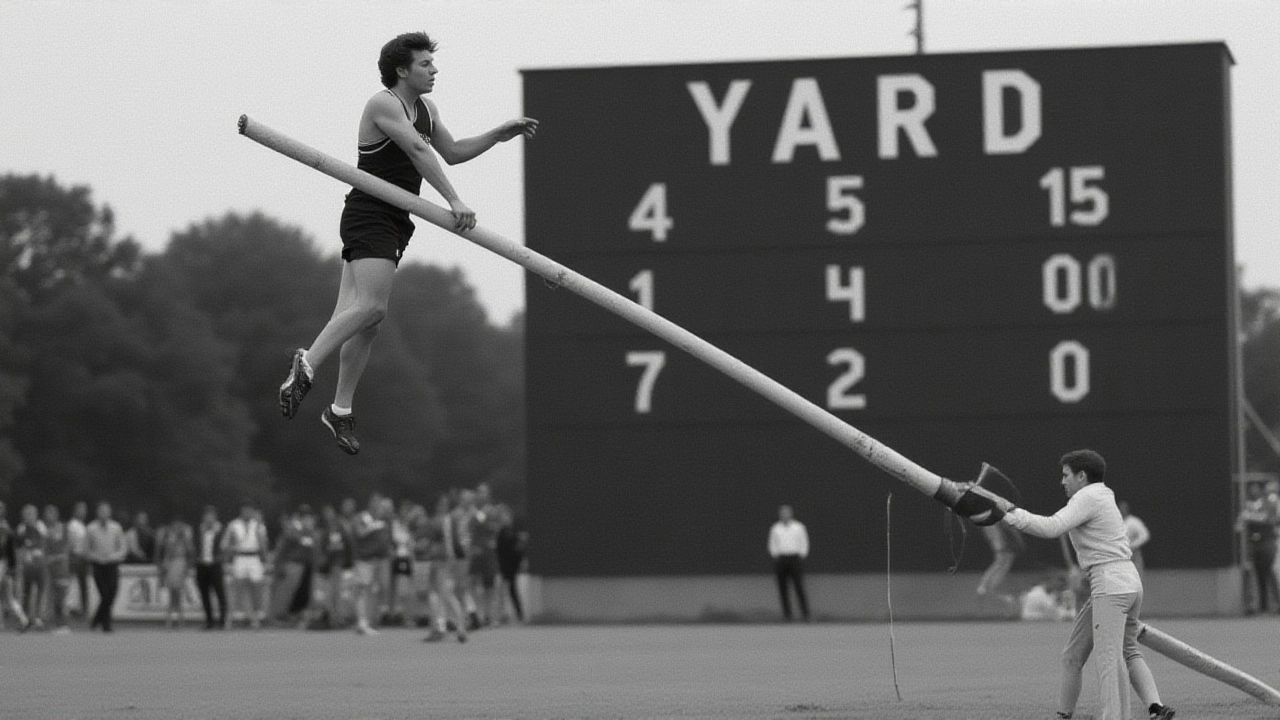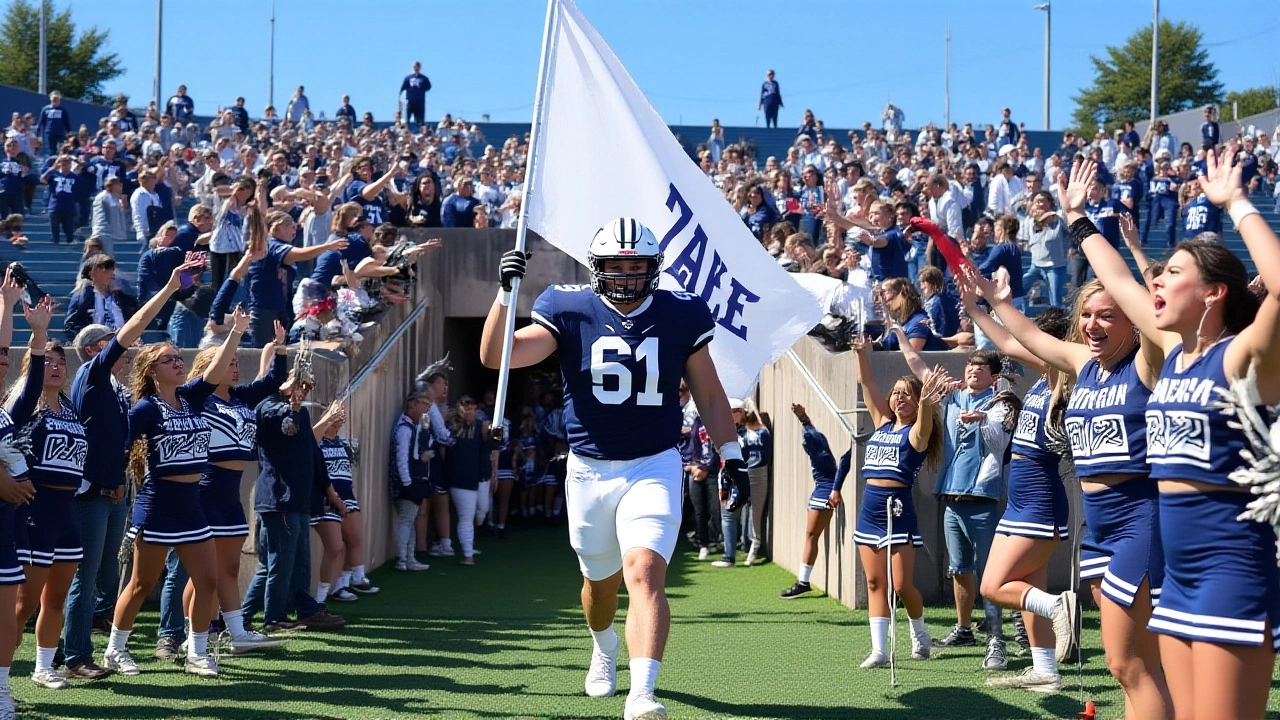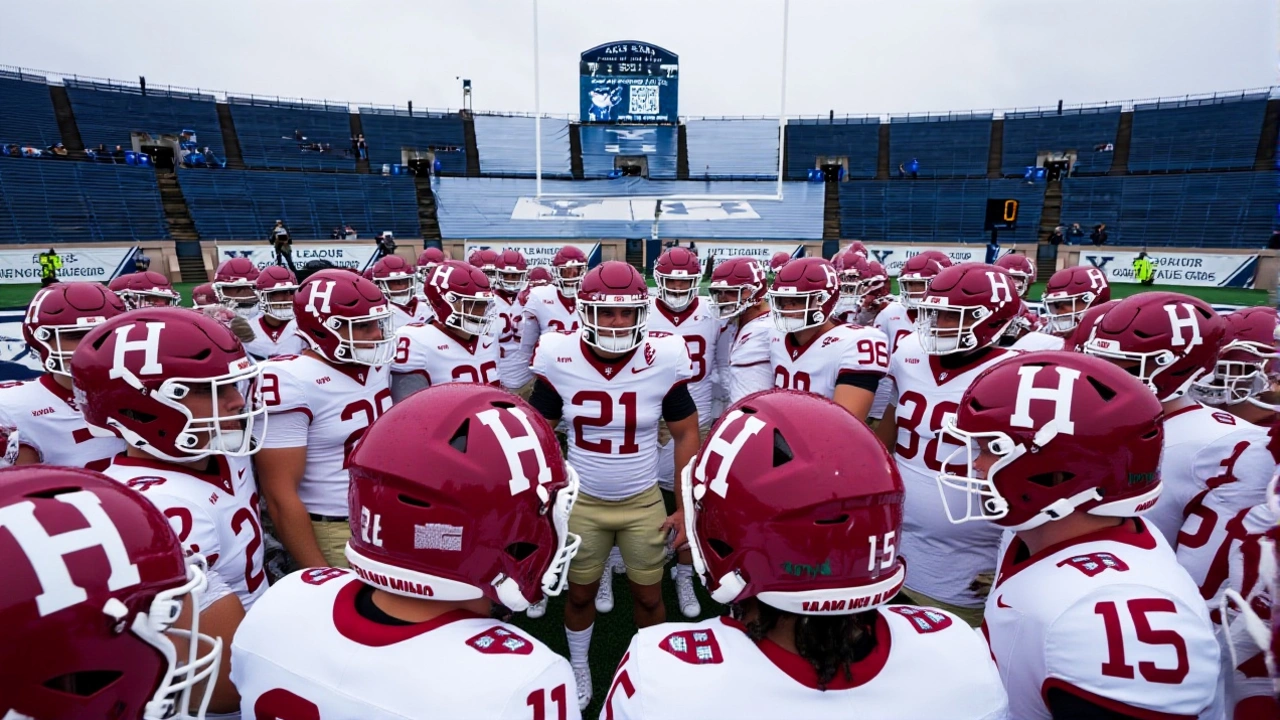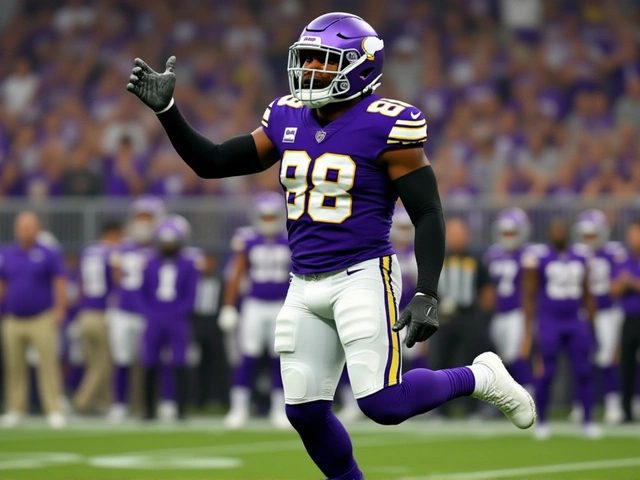
The Yale Bulldogs didn’t just beat the Harvard Crimson — they shattered expectations. On a crisp November afternoon at the Yale Bowl in New Haven, Connecticut, Yale rolled to a 45-28 victory over the previously undefeated No. 10/8 Crimson in the 141st edition of The Game, ending Harvard’s nine-game winning streak and sending the Crimson to its first loss of the 2025 season. The game, played on Saturday, November 22, 2025, at noon Eastern Time and broadcast on ESPNU, wasn’t just another rivalry clash — it was a season-defining earthquake in Ivy League football.
Yale’s Offense Ignites, Harvard’s Defense Falters
From the opening whistle, Yale’s offense looked like a well-oiled machine. Quarterback Dante Reno carved up Harvard’s secondary with surgical precision, finishing with 273 passing yards and three touchdowns. His 64-yard bomb to wide receiver Nico Brown with 7:34 left in the second quarter turned a 17-7 lead into a 24-7 blowout, and the damage wasn’t done. Later, Reno found tight end Lucius Anderson on a 12-yard slant with 14:56 remaining, pushing the score to 45-20 and effectively sealing the game.
But the real engine? Running back Josh Pitsenberger. Carrying the ball 38 times for 143 yards, he scored three touchdowns — an 8-yard burst in the second quarter that marked his 35th career rushing TD, moving him into second place on Yale’s all-time list. Two more scores — from 1 yard and 4 yards — capped a performance that felt like a passing of the torch. Pitsenberger didn’t just run the ball; he ran over Harvard’s defense, which had allowed just 7 sacks all season and averaged 4.8 yards per carry entering the game.
Harvard’s Star Quarterback Can’t Carry the Load Alone
Harvard’s Jaden Craig was brilliant in defeat. Throwing for 266 yards and three touchdowns — including a 31-yard strike to Brady Blackburn and two scoring passes to Ryan Tattersall — he kept the Crimson alive. His 26-yard scramble for a touchdown in the third quarter briefly cut Yale’s lead to 31-20. But the Crimson’s offense, so balanced and efficient all season, was held to just 94 rushing yards. Harvard’s offensive line, a strength all year, was pressured relentlessly. Yale’s defensive front, led by linebacker Malik Carter (who had two sacks), disrupted timing, forced two key third-down stops, and made Craig work for every yard.
Defensively, Harvard’s Sean Line was a force of nature — a career-high 15 tackles, his fifth game with double-digit stops this season. Teammate Ty Bartrum added 14 tackles, his third such performance in 2025. But even their grit couldn’t overcome the avalanche. Harvard had entered the game with a 9-0 record and a share of the Ivy title already locked up. Yet, as the scoreboard climbed, so did the sense of disbelief. This wasn’t just a loss — it was a collapse under pressure.

The Tiebreaker That Changed Everything
Here’s the twist: both teams finished 6-1 in Ivy League play. Both had six wins. Both had earned respect. But only one would get the automatic bid to the NCAA FCS Playoffs. And that one? Yale. Thanks to the head-to-head tiebreaker, the Bulldogs (8-2 overall) punched their ticket. Harvard (9-1 overall), despite having more wins than any season since 2015, was left waiting.
That’s the cruel beauty of college football. Harvard had already clinched at least a share of the Ivy crown after a heart-stopping 45-43 win over Penn the week before — a game decided by a 53-yard field goal as time expired. They were on the cusp of an unbeaten season, something they hadn’t achieved since 2014. But in the end, it wasn’t about win totals. It was about who won when it mattered most.
What This Means for the Ivy League and Beyond
Yale’s win was its first in The Game since 2023 — a two-year drought broken in the most dramatic fashion possible. For Harvard, it’s a bitter pill. Coach Andrew Aurich, in his second season, has built something special — the Crimson are 17-3 overall and 11-3 in Ivy play over the last two years. But this loss, coming after such a dominant season, will sting for months.
The selection show for the NCAA FCS Playoffs arrives Sunday, November 23, 2025, at noon Eastern Time on ESPNU. Harvard will be watching — hoping for an at-large bid, but knowing the odds are slim. The Crimson have the resume: nine wins, a top-10 ranking, and a tough schedule. But the selection committee rarely rewards teams that lose their final game, especially to a rival in such a high-profile setting.
Meanwhile, Yale’s players celebrated on the Yale Bowl turf, not just as winners of a historic rivalry, but as the team that earned the right to play in January. For the first time since 2019, the Bulldogs will compete in the FCS postseason — and they did it by doing what no one else could: beat Harvard when it mattered most.

Behind the Numbers
- Yale: 45 points, 463 total yards, 38 rushes by Pitsenberger
- Harvard: 28 points, 360 total yards, 94 rushing yards — their lowest since Week 2
- Yale’s defense forced 3 turnovers, including a key interception by safety Devon Ellis in the third quarter
- Harvard’s 9 wins are their most since 2015; Yale’s 8 wins are their most since 2021
- 141st meeting between Yale and Harvard — the oldest rivalry in college football, dating to 1875
Frequently Asked Questions
Why did Yale get the automatic bid to the FCS playoffs over Harvard despite having fewer overall wins?
Ivy League rules prioritize head-to-head results over overall records when teams are tied in conference play. Both Yale and Harvard finished 6-1 in the Ivy League, but Yale won the direct matchup 45-28. That single victory gave the Bulldogs the automatic NCAA FCS Playoff berth, even though Harvard had nine wins to Yale’s eight. It’s a system designed to reward dominance in conference play, not just win totals.
Has Harvard ever made the FCS playoffs without winning the Ivy League?
No. Since the Ivy League began its automatic bid system in 1995, no team has received an at-large FCS playoff berth without winning the conference. Harvard came closest in 2015, finishing 6-1 but losing to Yale in the final game — and was left out. This year’s loss makes their chances even slimmer. The selection committee has never extended an at-large bid to a team that lost its final game, especially to a rival in such a high-stakes matchup.
What’s the significance of Josh Pitsenberger’s 35th career rushing touchdown?
Pitsenberger’s 35th rushing touchdown moved him past legendary back Tommy Thompson (34) into second place on Yale’s all-time list, behind only John L. Williams (40). He’s the first Yale running back to hit 35 since 2009 and only the fourth in program history. His consistency — 1,127 rushing yards this season, 13 touchdowns — cements him as one of the most productive backs in Ivy League history, and his performance in The Game may be remembered as his defining moment.
How does this result affect Harvard’s legacy under coach Andrew Aurich?
Aurich’s tenure has been remarkable — 17 wins in 20 games, two top-10 finishes, and a program resurgence. But losing the final game of the season, especially after a 9-0 start, casts a shadow. Had Harvard won, they’d have been the first Ivy team since 2014 to go unbeaten. Instead, they’re left with a near-perfect season that ended in heartbreak. Still, his recruiting and offensive system have elevated Harvard to national relevance — even if the ultimate prize slipped away.
What’s next for Yale’s program after this win?
Yale will prepare for its first FCS playoff game since 2019, likely facing a mid-major powerhouse like North Dakota State or South Dakota State. The Bulldogs’ offense, now proven against elite competition, will be a major story. Dante Reno’s poise under pressure and Josh Pitsenberger’s durability make them a dangerous duo. More importantly, this win could be the catalyst for Yale to break Harvard’s long-standing dominance in the rivalry — and reestablish itself as a consistent contender in the Ivy League.
Is this the most important win in Yale football history?
It’s certainly among the top three. The 1921 win that ended Harvard’s 20-game winning streak, the 1975 upset that broke a 13-game Crimson streak, and now this — the 2025 victory that denied Harvard an unbeaten season and secured Yale’s playoff spot. It’s not just about the score; it’s about legacy. For Yale fans, this wasn’t just a win — it was a statement: the Bulldogs are back, and they’re not going away.


